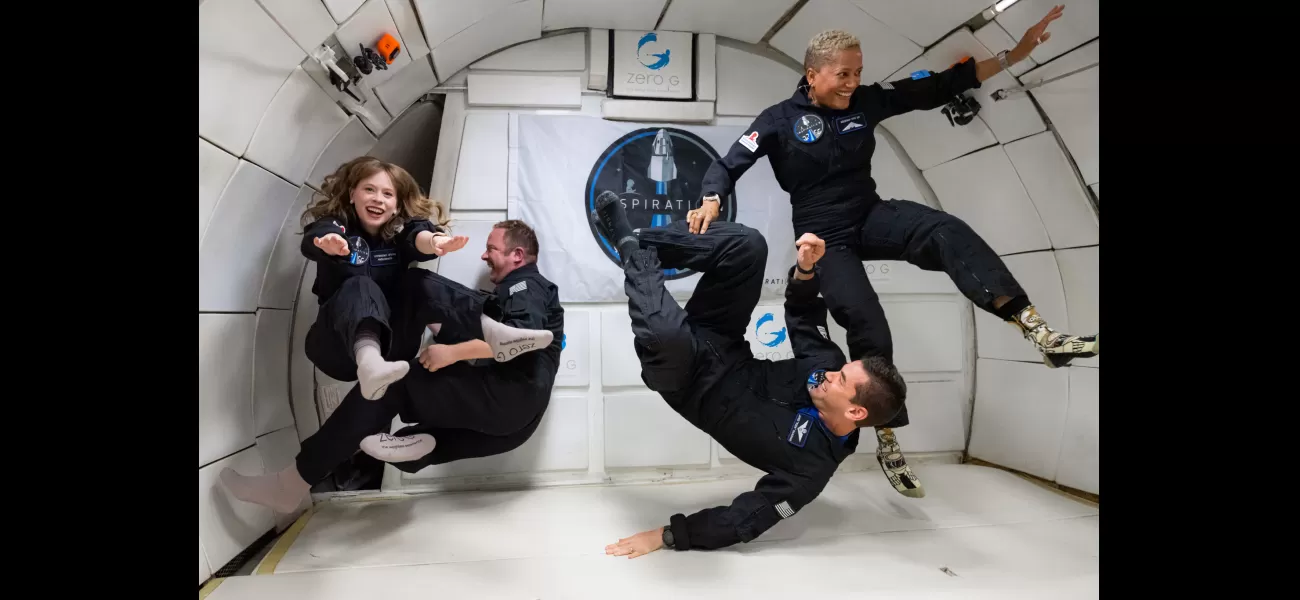Space travel's impact on astronaut well-being
Urgent call to advance space medicine for upcoming missions.
June 11th 2024.

Scientists have identified various factors that are crucial for our understanding of the new space race. These include changes in the immune system, blood clotting, and molecular alterations. With the ongoing advancements in space technology, it is imperative that we comprehend these changes in order to ensure the safety and well-being of astronauts.
Recent studies have focused on the effects of space travel on both civilian and professional astronauts. The findings have shed light on the changes that occur in individuals who have spent extended periods of time in space, ranging from 180 days to a year. According to the researchers, spaceflight can result in significant molecular, cellular, and physiological shifts in the human body, presenting numerous biomedical challenges.
As more and more people embark on space missions, it is crucial that we understand the potential health risks associated with space exploration. This is particularly important for long-duration trips to the moon and potentially even Mars. However, the current framework for aerospace medicine is lagging behind the advancements in precision medicine on Earth. This highlights the need for the rapid development of space medicine databases, tools, and protocols.
The studies have revealed that even short-range spaceflights, such as the recent three-day SpaceX mission in Inspiration4, can lead to broad-ranging molecular changes in the body. While the majority of these changes return to baseline levels within months after the mission, some proteins, genes, and cytokines remain activated even during the recovery period after spaceflight. This suggests that these changes persist for at least three months after the flight has ended.
Despite these findings, the researchers have reassured that short-range spaceflights do not pose a significant health risk for the crew. In fact, females have been found to return to baseline levels faster than males for certain changes in gene expression and chromatin states. Additionally, the study has also identified sex-specific effects on blood clotting and immune system regulation, indicating the importance of further research in precision astronaut medicine.
In order to facilitate the development of precision aerospace medicine, the authors suggest leveraging the datasets, tools, and resources available in the Space Medicine and Aerospace Physiology (SOMA) program. This will not only accelerate the progress in this field, but also improve health monitoring and risk mitigation for future space missions. The researchers have also made their findings available online, providing a valuable resource for further studies.
For the latest updates on breaking news, celebrity, and sports, follow our WhatsApp channel. With no comments, algorithms, or access to your private details, you can stay informed without any unwanted distractions. We are committed to keeping you updated on the latest developments in the world of news, so join us on WhatsApp today!
Recent studies have focused on the effects of space travel on both civilian and professional astronauts. The findings have shed light on the changes that occur in individuals who have spent extended periods of time in space, ranging from 180 days to a year. According to the researchers, spaceflight can result in significant molecular, cellular, and physiological shifts in the human body, presenting numerous biomedical challenges.
As more and more people embark on space missions, it is crucial that we understand the potential health risks associated with space exploration. This is particularly important for long-duration trips to the moon and potentially even Mars. However, the current framework for aerospace medicine is lagging behind the advancements in precision medicine on Earth. This highlights the need for the rapid development of space medicine databases, tools, and protocols.
The studies have revealed that even short-range spaceflights, such as the recent three-day SpaceX mission in Inspiration4, can lead to broad-ranging molecular changes in the body. While the majority of these changes return to baseline levels within months after the mission, some proteins, genes, and cytokines remain activated even during the recovery period after spaceflight. This suggests that these changes persist for at least three months after the flight has ended.
Despite these findings, the researchers have reassured that short-range spaceflights do not pose a significant health risk for the crew. In fact, females have been found to return to baseline levels faster than males for certain changes in gene expression and chromatin states. Additionally, the study has also identified sex-specific effects on blood clotting and immune system regulation, indicating the importance of further research in precision astronaut medicine.
In order to facilitate the development of precision aerospace medicine, the authors suggest leveraging the datasets, tools, and resources available in the Space Medicine and Aerospace Physiology (SOMA) program. This will not only accelerate the progress in this field, but also improve health monitoring and risk mitigation for future space missions. The researchers have also made their findings available online, providing a valuable resource for further studies.
For the latest updates on breaking news, celebrity, and sports, follow our WhatsApp channel. With no comments, algorithms, or access to your private details, you can stay informed without any unwanted distractions. We are committed to keeping you updated on the latest developments in the world of news, so join us on WhatsApp today!
[This article has been trending online recently and has been generated with AI. Your feed is customized.]
[Generative AI is experimental.]
0
0
Submit Comment





